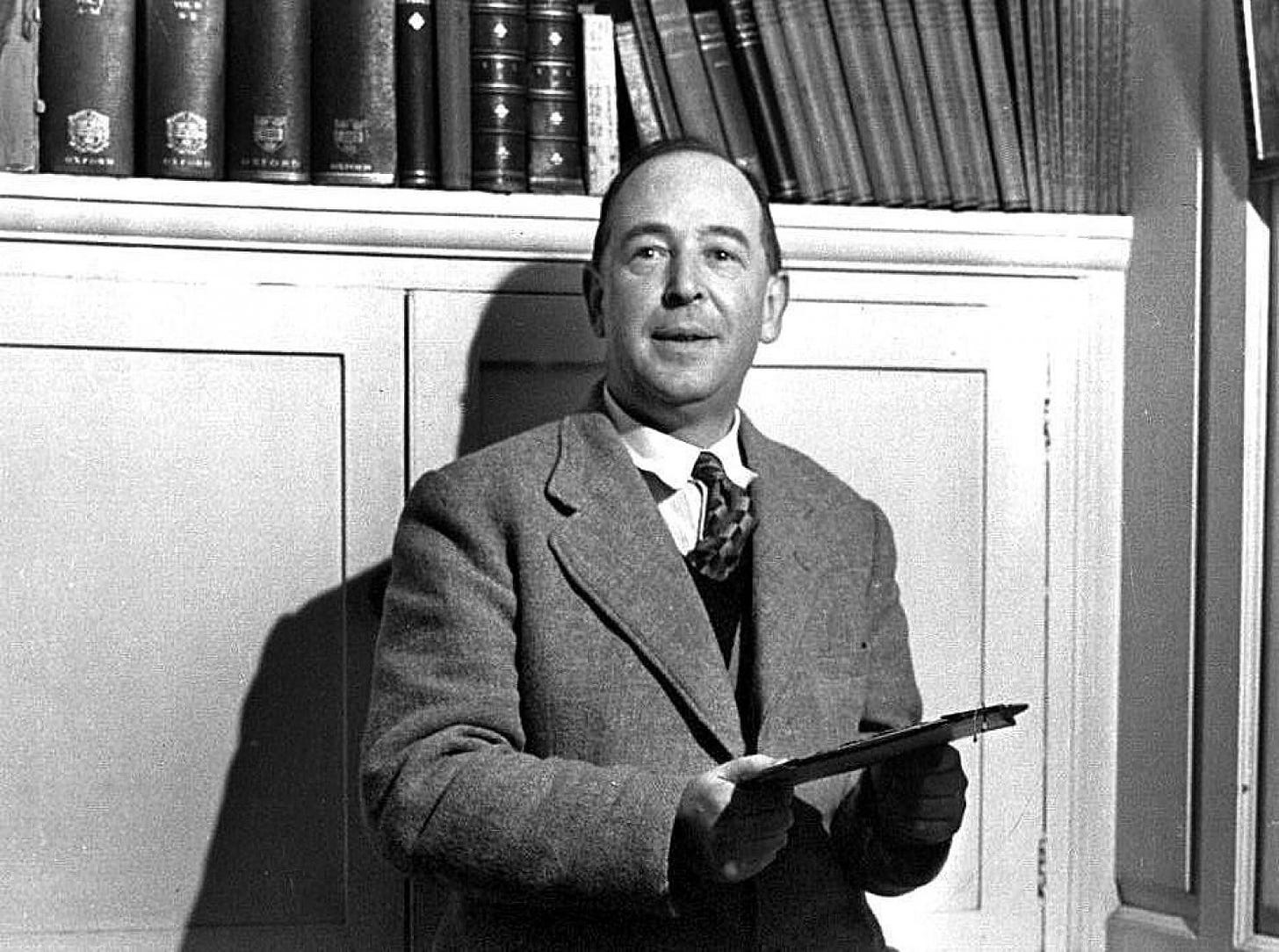Men Without Chests
Succinct and timeless in its message, C.S. Lewis's "The Abolition of Man" is a required read for anyone looking to diagnose modernity’s problems.

There are few problems quite as pressing in American society today as the decay of the education system. It is not merely declining test scores or comprehensive reading levels that is troubling. Rather, there is a widespread decline in the moral aspects of education. Everywhere in the United States, this revolution of education standards (begun a hundred years ago) is felt. The primacy of technical education and the disdain the modern educational apparatus holds for traditional moral teachings has brought about an age of moral relativism. As the Christian ethos fades, so do the civilized habits formed from it. This problem is not unique to the United States, nor the current moment, though. In the timeless The Abolition of Man, C.S. Lewis diagnoses these problems as they relate to the United Kingdom in his time. His wisdom is worth resurrecting.
Standing at a mere 87 pages, Lewis’s educational classic is a quick read. Written in 1943 while the United Kingdom struggled against the Nazi terror, The Abolition of Man is woven with a thoroughly Christian view of what it means to be properly educated. Arguably Lewis’ most quotable work, it puts on display how disconnecting lessons of morals and ethics from their teleological groundings produces hollowed out students. More than a simple tract on education, though, the book provides a window into the soul of the modern man and the end result of modernity’s long march away from the moral disciplines towards technical supremacy.
The book opens with an exposition on English composition teaching. Anonymously citing a book used to teach children the basics of the English language, Lewis reflects on how the way the book is written imparts moral lessons to the students unintentionally. Specifically, he makes the point that, though modern education often doesn’t mean to do so, it teaches children that emotions invoked by association—the example Lewis uses involves the wonder man feels in the presence of historic monuments or beautiful places in nature—is irrational and should be ignored.
Second, but no less important, Lewis notes that mere rational teaching of virtue does not suffice to make a man virtuous without the “trained emotions” grounding virtue. Here, the reader is introduced to one of Lewis’s finest passages:
“I had sooner play cards against a man who was quite skeptical about ethics, but bred to believe that ‘a gentleman does not cheat,’ than against an irreproachable moral philosopher who had been brought up among sharpers.”
Not content to let the reader chew on this wisdom, Lewis continues. The point he is attempting to drive home in this chapter is that sentiment is as necessary as reason for man to thrive. Courage, honor, and self-sacrifice cannot survive merely as rational commands. They must be tied to the heart. In the modern world, sentiment has atrophied, and the results are such:
“In a sort of ghastly simplicity we remove the organ and demand the function. We make men without chests and expect of them virtue and enterprise. We laugh at honour and are shocked to find traitors in our midst. We castrate and bid the geldings be fruitful.”
The next chapter goes into further detail regarding the philosophy of modern education, and it is here Lewis expands his assault against modern education to an indictment of the modern way of viewing the world. The crux of his treatise is that there is a universal moral order—what he calls the Tao—of values that everyone implicitly grounds their worldview in. Rather than simply following biological instinct, or Reason alone, man ultimately grounds his beliefs in a set of values that appear across time and societies. Instead, any man who makes value judgments at all draws those judgments from the Tao, even if he attempts to use those judgments to reject the Tao entirely. The only non-contradictory way to reject these universal moral orders is to reject all value judgments entirely. Here, Lewis prophetically predicts, is where modernity is heading.
Please help us in our efforts to provide thought-provoking content by offering a donation to The Freemen Foundation.
The final chapter of The Abolition of Man is Lewis’ prediction into the future. Modern society, he argues, is hellbent on crafting a new moral reality for itself. Equipped with new technologies, modern man will continue his quest to conquer Nature unabated. In this quest, however, Lewis argues he will only end up conquering himself, for man is as much a part of Nature as he is master of it. By rejecting the Tao, that universal moral order which has been discovered and passed down through the generations, man submits himself to the dominance of Nature he has pursued. Here, the reader is given another remarkable insight:
“There was very little magic in the Middle Ages: the sixteenth and seventeenth centuries are the high noon of magic….For the wise men of old the cardinal problem had been how to conform the soul to reality, and the solution had been knowledge, self-discipline, and virtue. For magic and applied science alike the problem is how to subdue reality to the wishes of man…”
Though not his most famous work, Lewis’ The Abolition of Man is certainly one of his finest. Its lessons are arguably more relevant today than they were when the book was published. Succinct and timeless in its message, The Abolition of Man is a required read for anyone looking to diagnose modernity’s problems—and hoping to provide solutions to them.
Scott Howard is an undergraduate student at the University of Florida. An alumnus intern of National Review, he is currently an Editor at Lone Conservative and volunteers as an Associate Editor for the Freemen News-Letter. @ConservaMuse




That book was prophetic. We’ve had an eight-decade assault on virtue and then people wonder how a guy like Donald Trump ended up president.